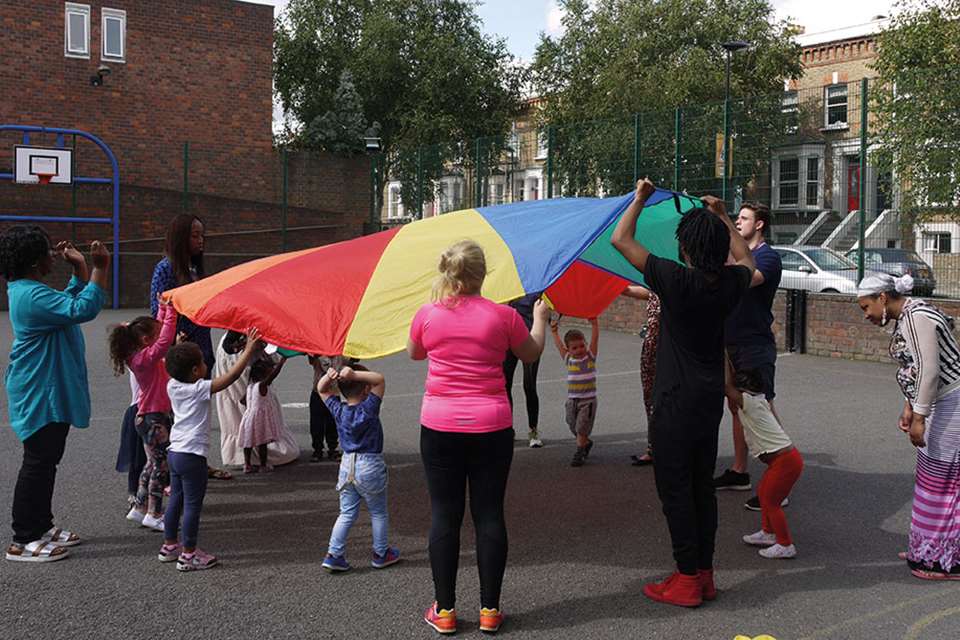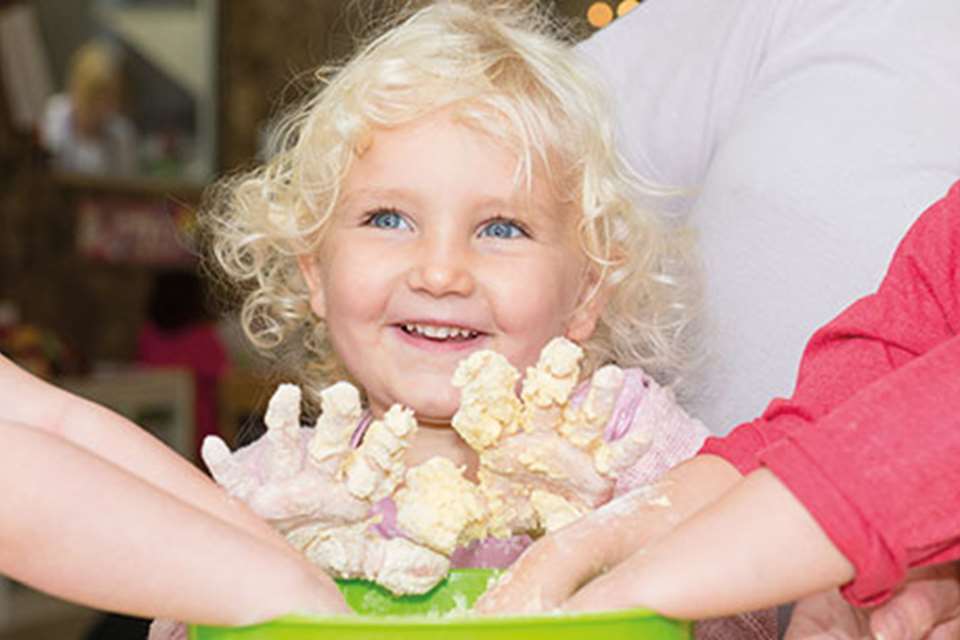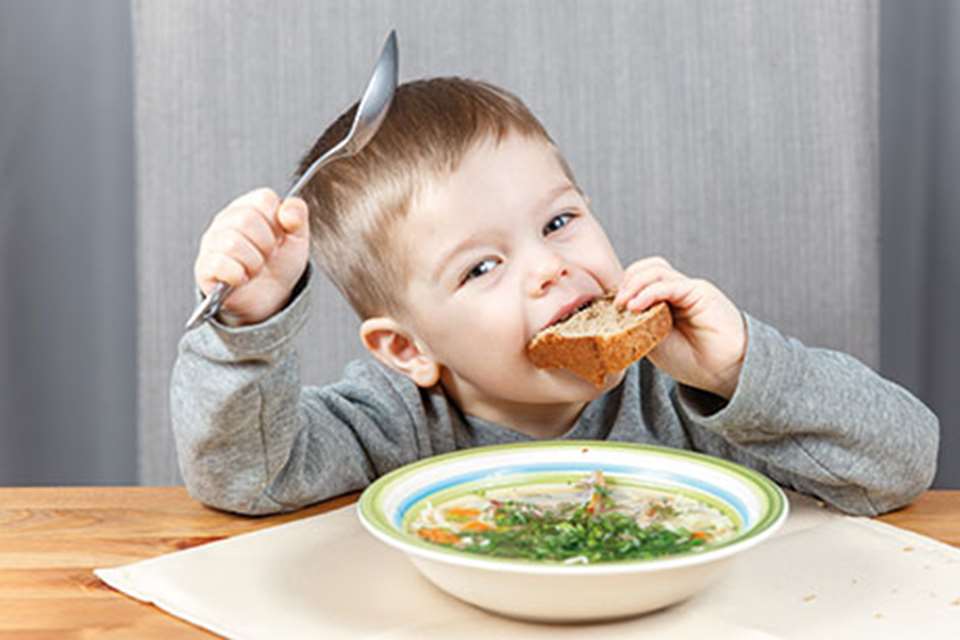A Unique Child: Nutrition - See fit
Monday, February 5, 2018
Settings in Newham are being helped to improve children’s health, reports Meredith Jones Russell

Download the PDF of Nutrition - See Fit
One in five children is already overweight or obese before they start school and almost a quarter of English three-year-olds have tooth decay. In the London Borough of Newham, the rates are well above these national averages. In 2015, the borough was found to have the highest proportion of childhood obesity in the capital, and the fourth-highest in England.
Early years professionals are on the front line in the battle against these health problems, and the well-being and nutrition team at Newham’s Early Start Group has been set up to work across the borough to help them.
The team is made up of three qualified nutritionists, all of whom are members of the All-Party Parliamentary Group on a Fit and Healthy Childhood, and work to deliver food, nutrition and healthy eating training, along with a health award to support early years settings to deliver an outstanding standard of nutrition provision.
Programme manager Edwina Revel says, ‘Our support for early years settings to meet the latest Government dietary recommendations set out in the Childhood Obesity Plan has seen a positive shift in National Child Measurement Programme results for children in Reception. We’ve seen a reduction from 12 per cent of Reception children overweight in 2015-16 to 11 per cent in 2016-17, and tooth decay falling from a high of 57 per cent in 2002.
‘But to positively influence change in the long term, it is key to continue the provision of training for early years staff, and provide them with the resources to meet the EYFS requirement for the provision of healthy, balanced and nutritious meals and set the foundations for future health and well-being.’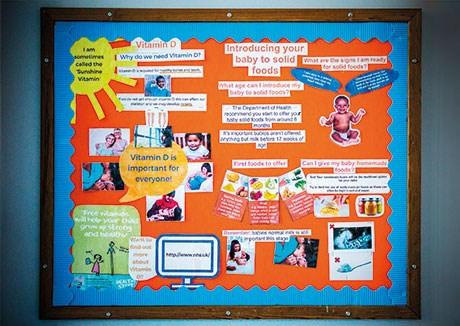
THREE TIERS
The Early Start Group offers a free three-tiered training package to all nurseries, childminders and children’s centres in the borough, certified by the Association for Nutrition (AfN), with four-hour sessions held at the group’s training venue or in-house consisting of presentations, activities and group work.
Tier 1 provides an introduction to the basic principles of nutrition and physical activity for under-fives, while tier 2 training focuses on ways of promoting health and well-being in an early years setting, with topics such as food policy, fussy eating and menu planning.
After completing the first two tiers, practitioners can enrol on tier 3’s ‘train the trainer’ sessions, which include:
‘Bin the Bottle’ – helping practitioners to pass on knowledge to families about introducing children to cups and beakers.
Cooking skills – planning and preparing the delivery of safe cooking sessions with children and families.
The team also provides a range of resources such as ‘tips sheets’, which settings are able to pass on to other members of staff and families, and can use for updating display boards, which the team recommends for helping to inform parents.
Georgia Leech, a senior practitioner in the Early Start Group’s well-being and nutrition team, says, ‘We want all practitioners to provide support in bettering practice, and to empower them to upskill and relay the information back to families who are not necessarily accessing help themselves. There is a lot of misinformation out there, and while we are not training practitioners to become fully fledged nutritionists, we are hoping to pass on practical advice they can then use to help families.
‘If parents don’t know what to give their children, that presents a whole extra problem and adds to the day-to-day challenges practitioners face.
‘For example, catering for funded childcare places can be very hard, and we are seeing many turn to lunchbox provision to save money, which brings the whole extra issue of monitoring what goes in them.
‘Our ethos is to get messages about healthy nutrition promoted far and wide, and make all children and families aware of them, as well as practitioners.’
ONLINE TRAINING AND BLOGS
This month (February), the group will launch a set of online training modules to make course content accessible to practitioners without having to miss work. The team also writes weekly blogs to keep settings up to date on nutrition topics, which Ms Leech says is vital. ‘Practitioners are very busy people so they are not always available to come on training sessions,’ she explains.
‘There are so many competing priorities and although health and well-being is high on the list, releasing staff for training when you have to keep to ratios can be difficult. Blogging helps us capture a wider audience.
‘There is very high staff turnover in the early years, and we have found that when our key contacts in a setting leave, we have to start all over again. Getting everyone involved is a slower process, so we are doing more training with staff to upskill practitioners. We have trained around 400 practitioners in just over a year, and these are just our unique contacts, as many of them attend multiple training sessions.’
Last year, the team launched a revamped version of their well-being and nutrition award, which is also tiered, with bronze, silver and gold levels available. More than 60 of Newham’s early years settings have signed up to the award and six have so far achieved the bronze award. The structure rewards settings that can demonstrate nine key criteria:
A whole-setting approach to health and nutrition.
- Nutrition training for staff.
- A food and drink policy.
- Physical activity initiatives.
- Promotion of health initiatives such as oral health or infant feeding.
- Meal and snack menus in line with Government food and drink guidelines.
- Opportunities for children to learn about food and a balanced diet.
- An eating environment in which children are encouraged to develop good eating habits and social skills.
- Food allergy and special dietary requirement policies.
After submitting their evidence online, settings are visited by one of the team’s nutritionists to audit the provision, with successful settings receiving a certificate and plaque to display on their premises.
‘We wanted to make the award tiered because gold standard isn’t necessarily always achievable,’ Ms Leech says. ‘This allows us to encourage settings in what they’re already doing well and praise what they are doing rather than criticise what they’re not. We very much want to put a positive spin on what settings are managing to do.’
CASE STUDIES
Julie Sussex, early education practitioner
Julie Sussex works with a group of childminders at the Edith Kerrison Children’s Centre in Custom House, east London. Ms Sussex attended Early Start Group’s tier 1 training with 11 others and now disseminates the training herself at the children’s centre. Another 17 are now looking to attend tier 2 training.
‘To be honest, I’m 60 years old and it was really nice to have an update on how things have changed,’ she says. ‘A lot of childminders have been working for a long time and they need updates too. It’s easy to get caught up in all the planning and paperwork you have to do, and nutrition can stop being the priority. I was completely unaware of things like the amount of exercise children should get [the Early Start Group recommends 180 minutes of physical activity per day] or some of the new strategies for fussy eating and using cups instead of bottles to protect children’s teeth.
‘The courses also open you up to the bigger picture of our society and how we see food. We talked about how we are role models for children and showing them what is healthy. I’m a bigger person myself and lots of people are, but we need to try to change the situation for the future because this will affect children’s lives. The statistics we heard on the course were horrifying and we need to do something about it.’
Honey Kaur, childminder
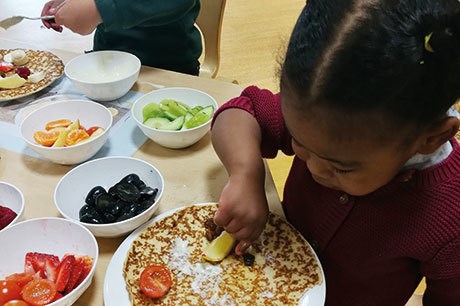
Honey Kaur, a childminder based in Manor Park, also in east London, attended Early Years Group training sessions with a group of 20 childminders.
‘I am a mum and I used to be a chef so I thought I knew a lot,’ she says. ‘But the training really blew me away. It made me realise how much more I could do for children and their families to point them in the right direction.
‘As adults, when children refuse to eat we can feel helpless, but the training taught me that if a child has a problem with eating, there is always something you can pinpoint.
‘They are often going through some kind of emotional upheaval and there are ways to interact without showing them you’re worried.
‘I had a girl who wasn’t eating at all, and would hardly take a single step when we tried to do physical activities. I realised her mum always carried her because she didn’t know about the importance of physical activity, so the girl wasn’t getting hungry. The training helped me to piece the jigsaw together and pass the knowledge on.
‘We also learned to encourage children to engage with food, have fun with it and get excited about mealtimes. I had one child who was adamant he didn’t like fruit. For Pancake Day, I got the children to make pictures on pancakes using blueberries and strawberries, and he was so engrossed in doing this he licked his fingers without realising and discovered he liked the taste.’
MORE INFORMATION
The Early Start Group also offers:
- a family contact centre
- first-aid courses for families and practitioners
- early years education and care through two nurseries the group owns and runs
- parenting seminars and discussion groups including sessions on toilet training, protecting children from sexual abuse, and support for parents of children with SEN or those at risk of developing behavioural problems
- a volunteering scheme for those interested in working in children’s centres


